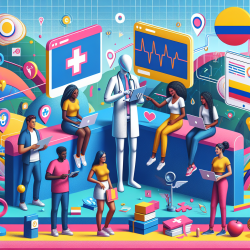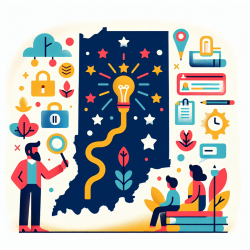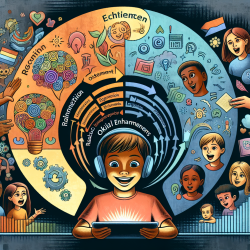Introduction
As practitioners in the field of speech-language pathology, our primary focus is on creating effective, data-driven strategies to support the development and well-being of children. A recent cross-sectional study titled "Internet-Based Access to Sexual and Reproductive Health Services Among Colombian Youth" offers valuable insights that can enhance our understanding of how to leverage internet-based resources to improve health outcomes for young people. This blog will explore the study's findings and discuss how practitioners can apply these insights to improve their skills and encourage further research in this critical area.
Study Overview
The study conducted in Colombia focused on understanding how young people aged 10-24 access sexual and reproductive health (SRH) services. It revealed that while 30.7% of participants relied on their parents for information, 24.0% used the internet to inquire about accessing SRH clinics. Notably, 81.5% expressed interest in having access to online materials that explain how to access SRH services. These findings highlight the significant role of digital resources in facilitating access to essential health services for youth.
Implications for Practitioners
For practitioners, these findings underscore the importance of integrating digital literacy and online resource navigation into educational programs. Here are some actionable steps practitioners can take:
- Promote Digital Literacy: Encourage young people to use reliable online resources for health information. Educate them on how to discern credible sources to prevent misinformation.
- Collaborate with Educators: Work with schools to incorporate comprehensive sex education that includes guidance on accessing SRH services online.
- Develop Online Content: Create engaging and informative online materials that explain how to access SRH services, ensuring they are age-appropriate and culturally sensitive.
- Advocate for Policy Changes: Support initiatives that aim to improve internet access and digital education for young people, particularly in underserved areas.
Encouraging Further Research
While the study provides valuable insights, it also highlights areas where further research is needed. Practitioners can contribute to this ongoing research by:
- Conducting Local Studies: Investigate how young people in different regions access SRH services and the role of the internet in this process.
- Exploring Barriers: Identify barriers to internet access and digital literacy among youth and develop strategies to overcome these challenges.
- Evaluating Online Resources: Assess the effectiveness of existing online materials in improving access to SRH services and suggest improvements.
Conclusion
The integration of internet-based resources into health education and service access is a promising avenue for improving outcomes for young people. By leveraging the findings of this study, practitioners can enhance their skills and contribute to the development of effective strategies that empower youth to access essential health services. To read the original research paper, please follow this link: Internet-Based Access to Sexual and Reproductive Health Services Among Colombian Youth: A Cross-Sectional Study.










